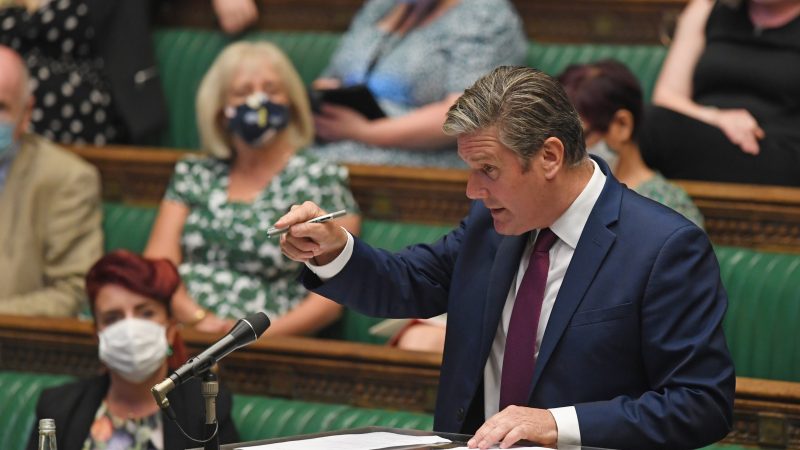
Keir Starmer and Boris Johnson met today following the unveiling of the Prime Minister’s long-awaited social care ‘plan’. Under the proposals, on which MPs will vote tonight, those with assets amounting to below £20,000 will pay nothing for their care, while those with between £20,000 and £100,0000 will be eligible for means-tested support. There will also be an £86,000 lifetime cap on the amount anyone will pay for care (not including care home food and accommodation costs). This is largely to be funded with the manifesto pledge-breaking, regressive 1.25 percentage point rise in National Insurance contributions. The plan, unsurprisingly, dominated the exchange between the party leaders today.
Johnson does not have a plan to end the crisis in social care. His proposals do nothing to tackle the rationing of services that sees around two million denied access to care, the low standards of care for people who do receive it, or the low pay and poor conditions of the workers in the sector. We do not know how much the NHS or social care will be receiving. The cash is supposed to go first to the NHS to clear the Covid backlog, but that is expected to last for years and Johnson was again unable to say today when it will be cleared or commit to getting through it by the end of this parliament.
The Labour leader asked Johnson to confirm this afternoon whether he would be breaking another 2019 manifesto promise: that no-one would be forced to sell their home to pay for care. “Where does the Prime Minister think they’re going to get that £86,000 without selling their home?” Starmer asked. Johnson suggested that an insurance market would be created to enable people to guarantee themselves against the cost of care, confirming that those with any substantial care needs will still need to secure a charge against their home under these proposals.
But the main problem is not that some more affluent people will need to sell their homes. Working-age people on median incomes will effectively be paying for this plan, so that those who own their home can pass it on through an inheritance. Starmer managed to pick out some of the the more fundamental problems with the policy, pointing out that a landlord renting out several properties would not pay a penny more in tax while their tenants would pay hundreds, and that a care worker on the minimum wage would see no wage rise under the plan, but a tax hike instead. Highlighting the cut to Universal Credit, due to take effect from October 6th, the Labour leader asked: “Why is the Prime Minister insisting on hammering working people?”
“There we have it – working people will pay higher tax, those in need will still lose their homes to pay for care, and he can’t even say if the NHS backlog will be cleared,” Starmer said today. He illustrated well how basically unfair and unfit the proposals put forward by Johnson are. But the Tories are banking on the fact that any ‘plan’ is better than none at all. The Prime Minister repeatedly accused Starmer of not having a counter-proposal this afternoon. “The whole House, indeed the whole country, can appreciate that we at least have a plan,” Johnson told MPs. Labour needs to articulate an alternative vision for a care system funded through progressive taxation, free at the point of use and available to all, with properly paid workers.




More from LabourList
Welfare vote: ‘Here are the failures it reveals – and three faint silver linings’
Welfare vote: Which Labour MPs voted against bill or backed new amendment?
‘Welfare reforms still mean a climate of fear. Changes are too little, too late’